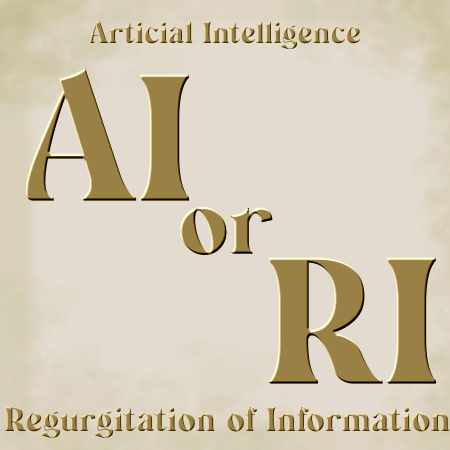
I was talking recently with my favorite coder—this would be my son, of course—who is smitten with the subject of artificial intelligence. He has a lot of faith in it solving a lot of problems, and I don’t doubt that it can and might. Let’s face it, computers have given us some things that are not just handy but essential, like online banking. My greatest fear of the apocalypse is the loss of online banking. I can bake and slice my own bread, but I shudder at the thought of going back to writing checks and keeping a register. And, when you think about how far online banking has come in the last few years, you’ve got to appreciate at least some potential of AI.
The problem with AI in its current state is that, for those of us who make a living in creative fields, it’s threatening to replace us in the most vulgar way. It can’t create, only regurgitate. Granted, one of the most famous assessments of creativity is that novices borrow while masters steal—a paraphrase of the old adage, “There’s nothing new under the sun.” And maybe these chatbots will someday achieve the status of masters, but right now they’re barely amateurs.
With my interest in the fertile science fiction notion of automatons, I’ve spent some time dwelling on the idea of the smart machine, whether operating with cogs and pinions or microchips and processors. I’m also dyslexic, and, despite the problems incurred, I’m glad I am. I’ve developed a paraphrase of another old adage. If necessity is the mother of invention, then misunderstanding is the father of creativity.
The beauty of dyslexia is that it allows the mind to take the presented reality and readily alter it into something that actually is a new thing, the process of analysis and synthesis being automatic but often unintentional. My own assessment is that these poor, wretched “masters” who must steal to create are simply lacking the greatest source of creativity—dyslexia. I also believe that a truly creative AI—as apposed to an RI, regurgitator of information—will only result when the software designers develop the dyslexia code. Of course, the problem they will then face moody, highly sensitive, randomly motivated, unpredictable machines. My son, of course, has yet to accept this theory.